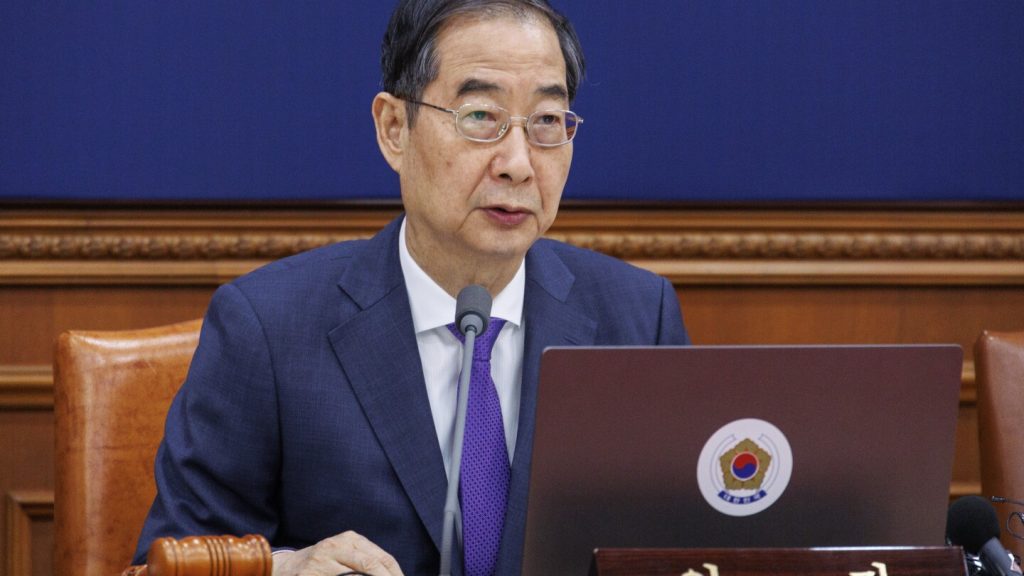South Korea’s ruling People Power Party suffered a crushing defeat in parliamentary elections, leading to the resignation of Prime Minister Han Duck-soo and senior presidential advisors. The liberal opposition forces secured a majority in parliament, potentially hindering President Yoon Suk Yeol’s domestic agenda and weakening his party’s control. Yoon accepted the public sentiment reflected in the election outcome and vowed to focus on improving economic conditions and reforming state affairs. The ruling party leader also stepped down to take responsibility for the election defeat.
The main opposition Democratic Party and its satellite party won a combined 175 seats in the 300-member National Assembly, with another small liberal opposition party expected to secure 12 seats through proportional representation. The ruling People Power Party and its satellite party obtained 108 seats, with final results pending. Yoon’s major foreign policies are expected to remain unchanged, but the election results were seen as a confidence vote on his leadership. Yoon faces challenges in implementing business-friendly policies and tax reforms with an opposition-controlled National Assembly.
Yoon’s critics have accused him of failing to address livelihood issues, retain officials implicated in scandals, and communicate effectively with opposition leaders. His approval ratings have been low, and he faces obstacles in pushing major policy platforms that require legislative approval. The divide between conservative and liberal parties has deepened in South Korea, with toxic rhetoric and mudslinging characterizing the campaigning ahead of the elections. The incoming parliament is set to convene on May 30 for a four-year term, with a high voter turnout of 67%, the highest since 1992.
Yoon’s former rival, Lee Jae-myung, is considering another presidential bid, with potential competition from conservative leader Han. The rivalry between Yoon and Lee intensified during the 2022 presidential election, where they engaged in demonizing each other. Lee sees the election results as a victory for the people and emphasizes the need for unity to address economic and livelihood challenges. The political landscape in South Korea remains polarized, with ongoing corruption investigations and power struggles shaping the future leadership dynamics. Yoon’s ability to navigate these challenges and implement his policy agenda will depend on his ability to work with the opposition-dominated parliament.


